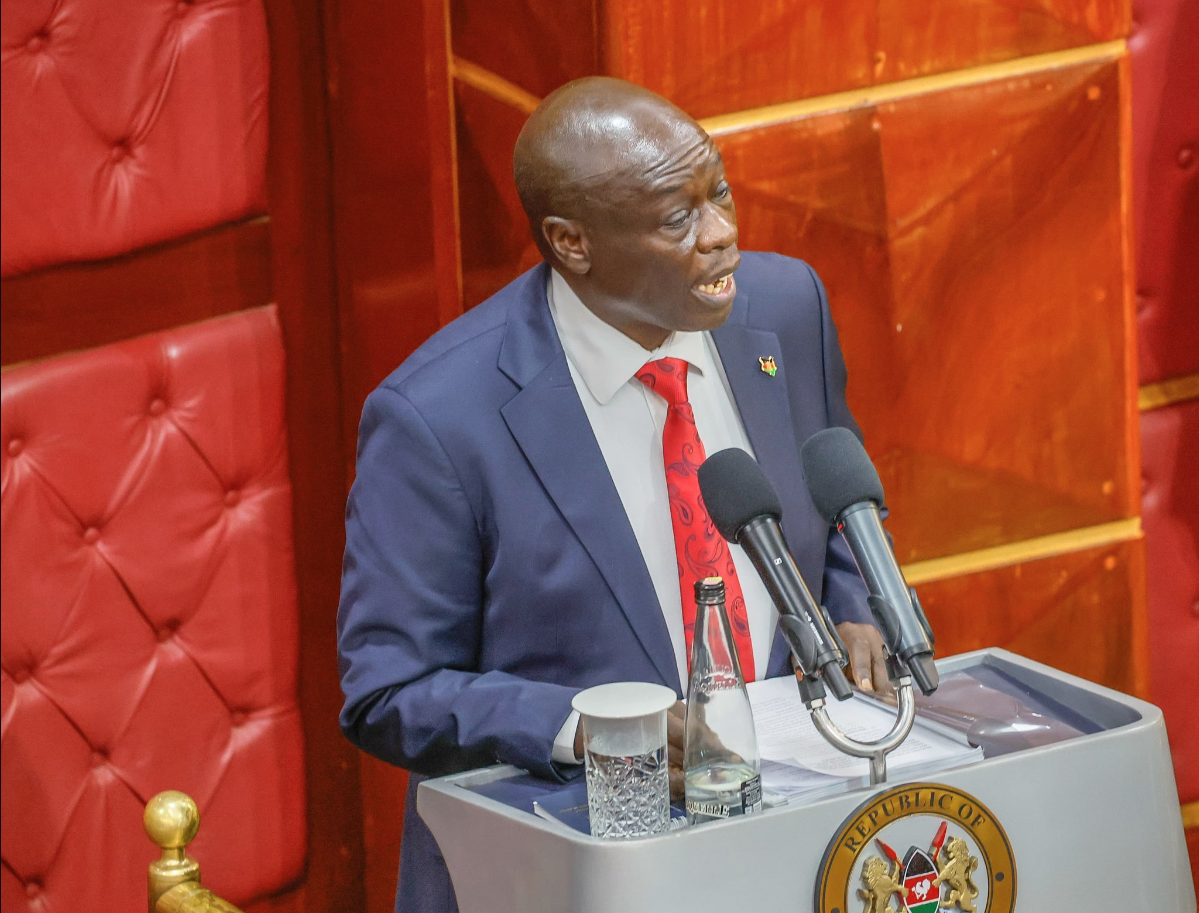.jpeg&w=3840&q=75)
Deputy President Rigathi Gachagua impeached
Senators voted to uphold at least five charges against Gachagua.
19 African countries conducted presidential or general elections
In Summary

Africa has had a busy election calendar in 2024, with 19
countries slated for presidential or general elections.
Africa is known to have some of the world’s longest-serving leaders but things took different directions for some heads this year.
Kenya:
Kenya made headlines in October when the Senate voted to oust Deputy President Rigathi Gachagua in a historic impeachment vote in October.
The upper house voted to impeach the 59-year-old on five charges out of a total of 11 against him, following two days of hearings.
The motion against President William Ruto’s then-number two was overwhelmingly approved by the National Assembly.
The 11 charges – which Gachagua had vigorously denied – included corruption, insubordination, money laundering, undermining the government, practicing ethnically divisive politics, bullying public officers and threatening a judge.
In all, he was convicted of five charges and acquitted of six others after allies of Ruto turned against him in recent months following a public souring of his relationship with his boss.
Gachagua called the impeachment process a political lynching
based on falsehoods.
Botswana:
In the same month, voters in Botswana delivered a shock defeat to the party that has ruled them for nearly six decades, handing victory to an opposition coalition and its presidential candidate Duma Boko.
The 54-year-old of the Umbrella for Democratic Change (UDC) replaced President Mokgweetsi Masisi, who conceded defeat after his Botswana Democratic Party (BDP) lost by a landslide for the first time in 58 years.
Chief Justice Terence Rannowane officially declared Boko the victor.
Boko was sworn in during a closed session at the office of the chief justice.
Outgoing President Masisi, a 63-year-old former high school teacher and UNICEF worker had been widely expected to keep his parliamentary majority and serve a second and final term.
More than one million people were registered to vote out of a population of 2.6 million.
Senegal:
On Sunday, March 24, Senegalese citizens went to the polls en masse to elect their next president.
The political context surrounding the race put the country’s system of institutional checks and balances to the test.
Initially scheduled for February 25, the election was eagerly awaited by the 7.3 million citizens (out of a population of 17 million) registered to vote.
In March, Opposition candidate Bassirou Diomaye Faye won more than 54 per cent of votes in Senegal’s presidential election.
Faye’s victory came just 10 days after he was freed from prison.
This was the first time since Senegal’s independence in 1960 that an opposition candidate had won the presidential election in the first round.
Faye also became the youngest democratically elected president in Africa, at 44 years old.
His strongest opponent was former Prime Minister Amadou Ba, who represents the ruling coalition Benno Bokk Yakaar
Ba and outgoing President Macky Sall sent Faye their congratulations after the announcement. Ba said that the people “have confirmed our country’s status as a major democracy.”
Turnout was 61.3 per cent.
Somaliland:
In November, the opposition leader of the self-declared republic of Somaliland, Abdirahman Mohamed Abdullahi, won the territory’s presidential election.
More popularly known as Irro, won with 64 per cent of the vote to become Somaliland’s sixth president since it broke away from Somalia in 1991.
The 69-year-old, a former speaker of Somaliland's
parliament, beat incumbent Musa Abdi Bihi, who took 35 per cent of the vote.
Somaliland is located in a strategic part of the world and is seen as a gateway to the Gulf of Aden and the Red Sea.
Despite its relative stability and regular democratic elections, it has not been recognised internationally.
Somaliland is a former British protectorate that joined the
rest of Somalia on 1 July 1960.
In a conflict leading up to the overthrow of President Siad Barre in 1991, tens of thousands of people were killed in Somaliland and its main city of Hargeisa was completely flattened in aerial bombardments.
In the chaos that followed Barre's departure, Somaliland declared its independence and has since rebuilt the city, and created its own currency, institutions and security structures.
.jpeg&w=3840&q=75)
Senators voted to uphold at least five charges against Gachagua.